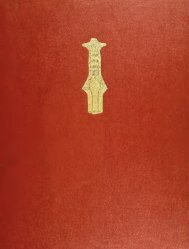What is History / by Edward Hallett Carr - Universal History Library
What is History / by Edward Hallett Carr - Universal History Library
What is History / by Edward Hallett Carr - Universal History Library
You also want an ePaper? Increase the reach of your titles
YUMPU automatically turns print PDFs into web optimized ePapers that Google loves.
WHAT IS HISTORY<br />
meaningless and futile. Well, what do we do ? As soon as we can break into the flow of<br />
eloquence, we edge our two v<strong>is</strong>itors gently but firmly towards the door, we instruct the<br />
janitor on no account to admit them again, and we get on with our inquiry. But what<br />
answer have we to the interrupters? Of course, Robinson was killed because he was a<br />
cigarette-smoker. Everything that the devotees of chance and contingency in h<strong>is</strong>tory say <strong>is</strong><br />
perfectly true and perfectly logical. It has the kind of remorseless logic which we find in<br />
Alice in Wonderland and Through the Looking Glass. But, while I yield to none in my<br />
admiration for these ripe examples of Oxford scholarship, I prefer to keep my different<br />
modes of logic in separate compartments. The Dodgsonian mode <strong>is</strong> not the mode of<br />
h<strong>is</strong>tory.<br />
H<strong>is</strong>tory therefore <strong>is</strong> a process of selection in terms of h<strong>is</strong>torical significance. To borrow<br />
Talcott Parson's phrase once more, h<strong>is</strong>tory <strong>is</strong> 'a selective system ' not only of cognitive, but<br />
of causal, orientations to reality. Just as from the infinite ocean of facts the h<strong>is</strong>torian<br />
selects those which are significant for h<strong>is</strong> purpose, so from the multiplicity of sequences of<br />
cause and effect he extracts those, and only those, which are h<strong>is</strong>torically significant; and<br />
the standard of h<strong>is</strong>torical significance <strong>is</strong> h<strong>is</strong> ability to get them into h<strong>is</strong> pattern of rational<br />
explanation and interpretation. Other sequences of cause and effect have to be rejected as<br />
accidental, not because the relation between cause and effect <strong>is</strong> different, but because the<br />
sequence itself <strong>is</strong> irrelevant. The h<strong>is</strong>torian can do nothing with it; it <strong>is</strong> not amenable to<br />
rational interpretation, and has no meaning either for the past or the present. It <strong>is</strong> true that<br />
Cleopatra's nose, or Bajazet's gout, or Alexander's monkey- bite, or Lenin's death, or<br />
Robinson's cigarette-smoking, had results. But it makes no sense as a general proposition<br />
to say that generals lose battles because they are infatuated with beautiful queens, or that<br />
wars occur because kings keep pet monkeys, or that people get run over and killed on the<br />
roads because they smoke cigarettes. If on the other hand you tell the ordinary man that<br />
Robinson was killed because the driver was drunk, or because the brakes did not work, or<br />
because there was a blind corner on the road, th<strong>is</strong> will seem to him a perfectly sensible and<br />
rational explanation; if he chooses to d<strong>is</strong>criminate, he may even say that th<strong>is</strong>, and not<br />
Robinson's desire for cigarettes, was the 'real' cause of Robinson's death. Similarly, if you<br />
tell the student of h<strong>is</strong>tory that the struggles in the Soviet Union in the 1920s were due to<br />
d<strong>is</strong>cussions about the rate of industrial<strong>is</strong>ation, or about the best means of inducing the<br />
peasants to grow grain to feed the towns, or even to the personal ambitions of rival<br />
leaders, he will feel that these are rational and h<strong>is</strong>torically significant explanations, in the<br />
sense that they could also be applied to other h<strong>is</strong>torical situations, and that they are 'real'<br />
causes of what happened in the sense that the accident of Lenin's premature death was not.<br />
He may even, if he <strong>is</strong> given to reflection on these things, be reminded of Hegel's much<br />
file:///C|/Documents and Settings/Vidula/Local Settings/Temp/Rar$EX00.750/carr.htm (64 of 97)7/20/2006 11:28:45 AM







